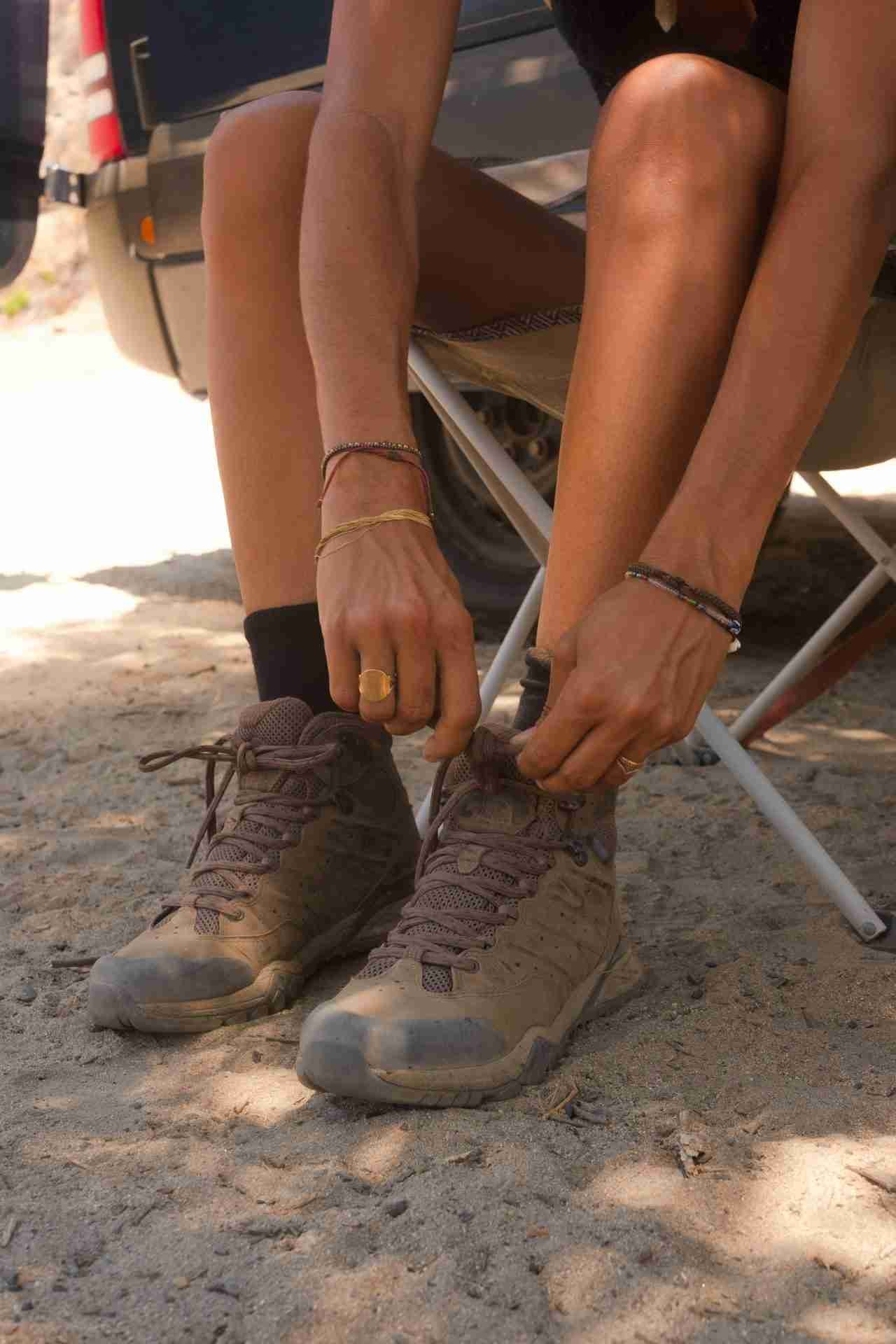Hitting the trails requires the right footwear. Choosing between hiking shoes and hiking boots is a crucial decision for any hiker. Whether you’re planning a casual day hike or a serious backpacking journey, the right choice can significantly enhance your hiking experience. This blog post will explore the advantages and disadvantages of both hiking shoes and boots. Enabling you to make a well-informed decision that suits your trekking preferences.
Hiking Shoes
Pros:
- Lightweight and Flexible: Hiking shoes stand out primarily because they are lighter than boots. This makes walking feel easier and more natural. Their flexibility also allows for a greater range of motion, making them ideal for day hikes on well-maintained trails.
- Breathability: Hiking shoes also excel in breathability. They are generally made with materials that allow better airflow, making them a superior choice for warm weather or dry conditions. This feature helps keep your feet cooler and reduces the risk of blisters.
- Quicker Break-In Period: In contrast to boots, hiking shoes often require little to no break-in period. You can enjoy their comfort right out of the box, which is perfect for hikers who don’t have time to wear them.
- Versatility: Furthermore, many hiking shoes offer enough versatility for everyday wear or other outdoor activities, such as running or light trekking.
Cons:
- Less Ankle Support: However, the low-cut design of hiking shoes provides less ankle support. This can be a drawback on uneven terrain or when you are carrying a heavier backpack.
- Lower Durability: Additionally, hiking shoes may not withstand rough terrain or harsh conditions as well as boots. They tend to be less durable and offer less protection against elements like rocks and roots.
- Less Water Resistance: Although some hiking shoes are waterproof, they generally offer less protection against water. Compared to boots, especially in wet conditions or when crossing streams.
Hiking Boots
Pros:
- Better Ankle Support: Crucially, the high-cut design of hiking boots provides superior ankle support, essential when navigating rocky, uneven terrain or carrying heavy loads.
- Increased Durability: Hiking boots are built to endure tough conditions and rugged terrain. They typically feature sturdier construction materials and reinforced soles.
- Greater Protection: Boots have higher cuts and robust materials. This offers better protection against environmental hazards like snake bites, sharp rocks, and thorny underbrush.
- Improved Water Resistance: Most hiking boots are designed to be waterproof and excel in wet conditions. Keeping your feet dry even when you cross streams or trek through mud.
Cons:
- Heavier and Less Flexible: Conversely, the sturdy construction of hiking boots makes them heavier and less flexible than hiking shoes. This can cause faster fatigue during longer hikes.
- Longer Break-In Period: Many hiking boots require a significant break-in period before they become comfortable, which might deter those seeking immediate comfort.
- Less Breathable: Boots often lack the breathability of shoes, making them hotter and potentially more uncomfortable in warm weather.
- Higher Cost: Generally, hiking boots are more expensive than hiking shoes, reflecting their robust construction and durable materials.
Ultimately, the best choice between hiking shoes and boots depends on your specific needs and the nature of your hikes. Consider the type of terrain, the weight you will carry, and the weather conditions. For light day hikes on well-trodden paths, hiking shoes might be the optimal choice due to their comfort and flexibility. However, for more challenging multi-day treks over varied terrain, the enhanced support and protection of hiking boots may prove indispensable.
Always ensure you try on several models and walk around in them to find the best fit for your feet and hiking style. Whether you opt for hiking shoes or boots, selecting the right footwear is key to enjoying your outdoor adventures safely and comfortably.

